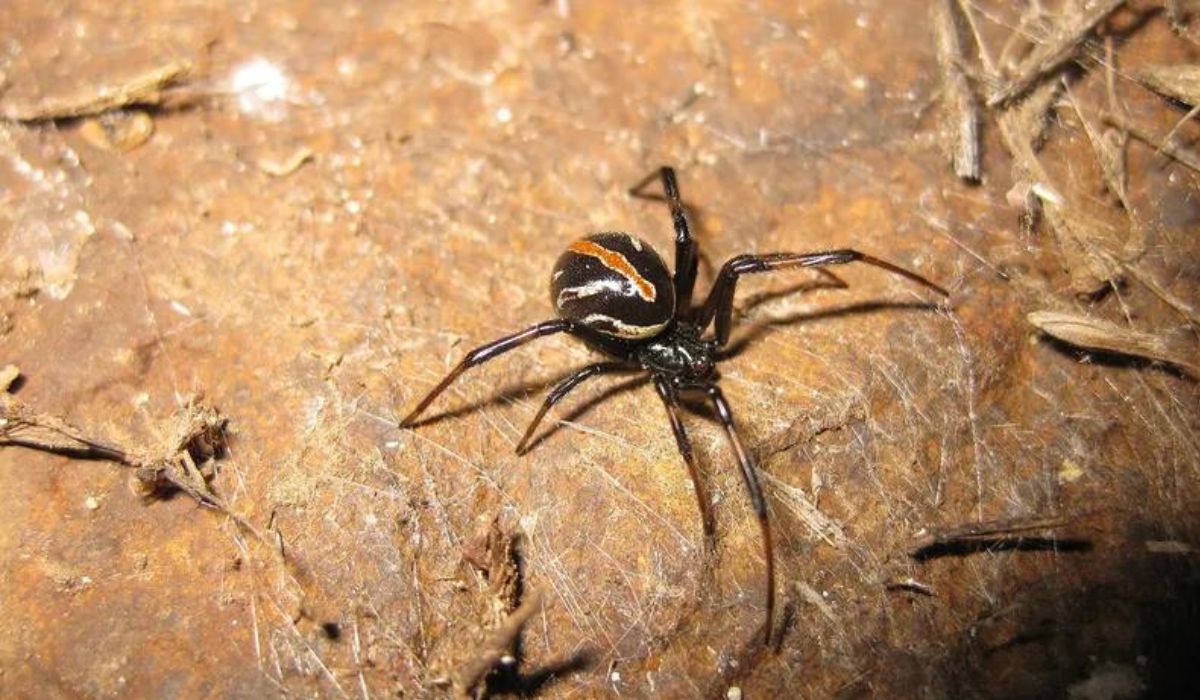Picture this: You’re enjoying a quiet evening at home when you spot a shiny black spider with a striking red hourglass shape on its abdomen lurking in the corner. Your heart races, and you wonder, “Should I kill a black widow spider?” This scenario is common, especially for those who fear the potential dangers these spiders might pose. However, the decision isn’t as straightforward as it seems. In this article, we’ll explore the question of whether you should kill a black widow spider by examining their characteristics, ecological benefits, and safe removal methods.
Understanding Black Widow Spiders
Identification
Black widow spiders are easily identifiable due to their distinctive features. Adult females are glossy black, with a round abdomen and a red hourglass marking on the underside. Males are smaller and often have lighter coloring, with less prominent markings. Knowing how to identify these spiders is crucial to understanding their presence in your home.
Habitat and Behavior
Black widow spiders are commonly found in dark, secluded areas such as basements, garages, and sheds. They prefer to hide in cluttered spaces or under furniture, making them less visible. These spiders are mostly nocturnal, coming out to hunt at night. Their webs are irregular and messy, serving primarily as traps for unsuspecting insects.
Venom and Effects
Black widow spiders are famous (or infamous) for their venom, which contains a neurotoxin called latrotoxin. While their bites can be dangerous, it’s essential to understand the actual risk involved. Symptoms of a bite can include severe pain, muscle cramps, and in rare cases, more severe reactions, particularly in children and the elderly. However, fatalities from black widow bites are exceedingly rare, especially with prompt medical treatment.
The Benefits of Black Widow Spiders
Pest Control
One of the significant benefits of having black widow spiders around is their role in pest control. These spiders help manage populations of common household pests like cockroaches, flies, and other insects. By keeping these populations in check, black widows indirectly contribute to a healthier living environment.
Ecosystem Role
Black widow spiders are a part of the food web, serving as both predators and prey. They help maintain the balance of insect populations, which can impact the health of your garden or outdoor space. Removing them could lead to an increase in harmful pests that can damage plants or spread disease.
Fear of the Unknown
The fear of spiders, known as arachnophobia, can often be exaggerated. Many people have a strong aversion to spiders due to misconceptions about their danger. Understanding the role of black widows in nature can help alleviate some of this fear and promote a more rational response to their presence.
The Risks of Killing Black Widow Spiders
Accidental Encounters
Killing a black widow spider can sometimes lead to dangerous situations. If you attempt to catch or kill the spider without proper precautions, you may risk getting bitten. They can strike if they feel threatened, especially if you’re reaching into their hiding spots.
Disrupting the Ecosystem
Eliminating too many black widow spiders can upset the ecological balance. With fewer predators, insect populations may grow unchecked, potentially leading to an infestation of pests that could harm your home or garden.
Fear of the Unknown
Killing spiders can also perpetuate a cycle of fear. Each encounter may reinforce the idea that spiders are inherently dangerous, making it harder for individuals to rationalize their fear and understand the ecological benefits these creatures provide.
Safe and Effective Black Widow Spider Control
Prevention
The best strategy for dealing with black widow spiders is prevention. Here are some effective tips:
- Declutter: Keep your home organized and free from clutter where spiders can hide.
- Seal Entry Points: Inspect your home for cracks and openings where spiders might enter, sealing them to prevent access.
- Regular Cleaning: Vacuum and dust regularly to remove spider webs and eggs.
Non-Lethal Methods
If you find a black widow spider in your home, consider non-lethal removal methods. You can:
- Use a Jar: Gently coax the spider into a jar, then release it outside, away from your home.
- Vacuum: If you must use a vacuum, ensure you dispose of the bag or contents outside immediately.
When to Seek Professional Help
If you’re dealing with a significant spider infestation or feel uncomfortable managing it on your own, it’s wise to call in pest control experts. They can safely assess the situation and provide effective removal without harming beneficial spiders or the ecosystem.
The Myth of the Deadly Black Widow
Exaggerated Fear
The black widow spider has gained a notorious reputation, often exaggerated in media and folklore. Many believe their bites are a death sentence, but this is far from the truth. Understanding their actual risk can help alleviate undue panic.
Statistics
Statistics indicate that only a handful of deaths occur annually due to black widow bites, primarily affecting vulnerable populations. Most people who receive timely medical attention recover without severe complications.
Risk Assessment
While it’s prudent to respect black widow spiders and their potential effects, the actual risk they pose to healthy adults is low. Understanding their behavior, ecology, and the rarity of severe reactions can provide peace of mind.
You May Also Like: Vicky Negus Brute Squad: Inside the World of Organized Crime
Conclusion
In conclusion, the question, “Should I kill a black widow spider?” involves more than just a reaction of fear. These spiders play an important role in the ecosystem and can help control pest populations. Rather than resorting to lethal measures, consider safe removal methods and preventive strategies to manage their presence in your home. By understanding and respecting these creatures, you can coexist peacefully while minimizing risks to both yourself and the environment.
FAQs
1. Are black widow spiders dangerous?
Yes, black widow spiders are venomous, but bites are rare and fatalities are exceedingly uncommon with prompt medical attention.
2. How can I identify a black widow spider?
Adult female black widows are glossy black with a red hourglass marking on their abdomen. Males are smaller and less distinct.
3. What should I do if I find a black widow in my home?
Consider safe removal methods, like coaxing it into a jar and releasing it outside. If uncomfortable, seek professional pest control help.
4. Do black widow spiders help control pests?
Yes, they prey on insects like cockroaches and flies, helping to manage pest populations in your home and garden.
5. Can I prevent black widow spiders from entering my home?
Yes, decluttering, sealing entry points, and regular cleaning can help prevent them from entering your home.











